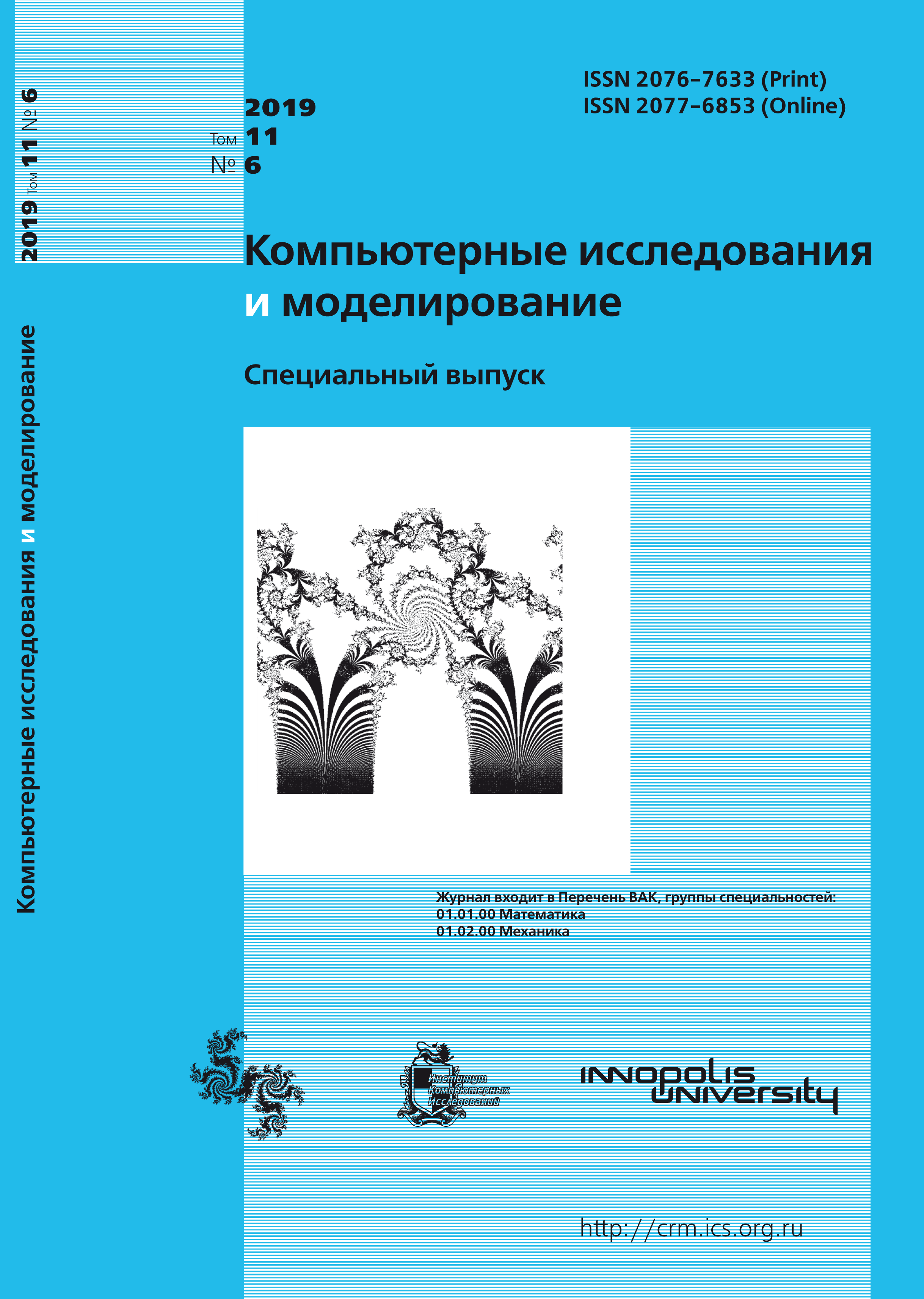Все выпуски
- 2024 Том 16
- Номер 1 (специальный выпуск)
- 2023 Том 15
- 2022 Том 14
- 2021 Том 13
- 2020 Том 12
- 2019 Том 11
- 2018 Том 10
- 2017 Том 9
- 2016 Том 8
- 2015 Том 7
- 2014 Том 6
- 2013 Том 5
- 2012 Том 4
- 2011 Том 3
- 2010 Том 2
- 2009 Том 1
The 3rd BRICS Mathematics Conference
 pdf (95K)
pdf (95K)
From 22 to 26 July, more than 150 scientists from Brazil, Russia, India, China and South Africa presented their research results at Innopolis University. Mathematicians gave talks in three sections: pure mathematics, applied mathematics and probability theory.
The BRICS Mathematics Conference is a nonprofit scientific conference aimed at promoting mathematical communications among BRICS countries. It was a great honor for us to host such a high-level event at Innopolis University, with participants from countries whose mathematical schools are world leaders. We found many innovative ideas and also shared our own vision in natural sciences. Although our university's primary focus lies in the field of computer science, which is often referred to — not quite correctly — as applied mathematics, all of us were eager to become familiar with new ideas and directions in all areas of modern mathematics.
The conference covered different aspects of mathematics ranging from pure and applied mathematics to computer science, probability and statistics.
Mathematics is a fundamental part of human thought and logic, and integral to attempts at understanding the world and ourselves. Mathematics provides an effective way of building mental discipline and encourages logical reasoning and mental rigor. In addition, mathematical knowledge plays a crucial role in understanding the contents of other subjects such as science, social studies, and even music and art.
Mathematics has a transversal nature. If we reflect on the history of curriculum in general, we see that mathematics (geometry and algebra) were two of the seven liberal arts in Greek and medieval times. This historical role supports the notion that mathematics has provided the mental discipline required for other disciplines.
Mathematics is applied in various fields and disciplines, i.e., mathematical concepts and procedures are used to solve problems in science, engineering, and economics. (For example, the understanding of complex numbers is a prerequisite to learn many concepts in electronics.) The complexity of those problems often requires relatively sophisticated mathematical concepts and procedures as compared to the mathematical literacy mentioned above.
Mathematics is part of our human cultural heritage, and we are responsible for developing that heritage.
The purpose of the BRICS Conference is to organize meetings between prominent math education experts, engage in world-class professional development, acquire cutting edge knowledge and teaching ideas that one can bring back to one’s research, invest in one’s own personal development, and become inspired.
Attending a math conference is really the best way for scientists to expand their professional circle and to interact with scientists from around the world.
It is a prestigious event organized with a motivation to provide an excellent platform for leading academicians, researchers, industrial participants and budding students to share their research findings with renowned experts.
The speakers discussed the theory of categories and topology, quantum information, and the use of numerical methods for medical purposes: modeling of the human heart and blood clots formation. Professor Bernardo Rodriguez showed the application of the classification of simple finite groups in cryptography — an abstract and complex theorem the proof of which takes 5000 pages. In the numerical methods section of this conference, Igor Petrov, a professor from MIPT and a corresponding member of the Russian Academy of Sciences, made a presentation on possible applications of numerical modeling in various industries - from medicine and robotics to geology and Arctic shelf research.
In my opinion, the conference covered very important topics, which are close to the development directions of our university and are of current and future interest for the development of society. It also allowed us to gather experts who have ideas important for the university and are sympathetic to us.
The conference welcomed rich debates during the seminar, which provided valuable insights into this very important topic.
I was pleasantly surprised to see that the students were interested in the use of modern approaches to the application of artificial intelligence algorithms to classical mathematical problems.
The conference featured 15 plenary talks, 3 from each of the five BRICS nations, and several contributed talks and posters.
Scientific cooperation is among the main purposes of the BRICS Math Conferences. About 180 national and international delegates attended the conference, among them 16 invited, 73 regular, and 59 poster speakers.
Of course, it is impossible to publish more than 100 articles in one special issue of the journal. We present only a small part of the reports. But the subjects of the articles reflect all the directions of the conference. Most of the presented articles deal with applied mathematics and application of mathematical modeling methods to solving important practical problems.
Alexander Tormasov,
Rector of Innopolis University,
Chairman of the Russian Organizing Committee
of the 3rd BRICS Mathematics Conference
Журнал индексируется в Scopus
Полнотекстовая версия журнала доступна также на сайте научной электронной библиотеки eLIBRARY.RU
Журнал входит в систему Российского индекса научного цитирования.
Журнал включен в базу данных Russian Science Citation Index (RSCI) на платформе Web of Science
Международная Междисциплинарная Конференция "Математика. Компьютер. Образование"







